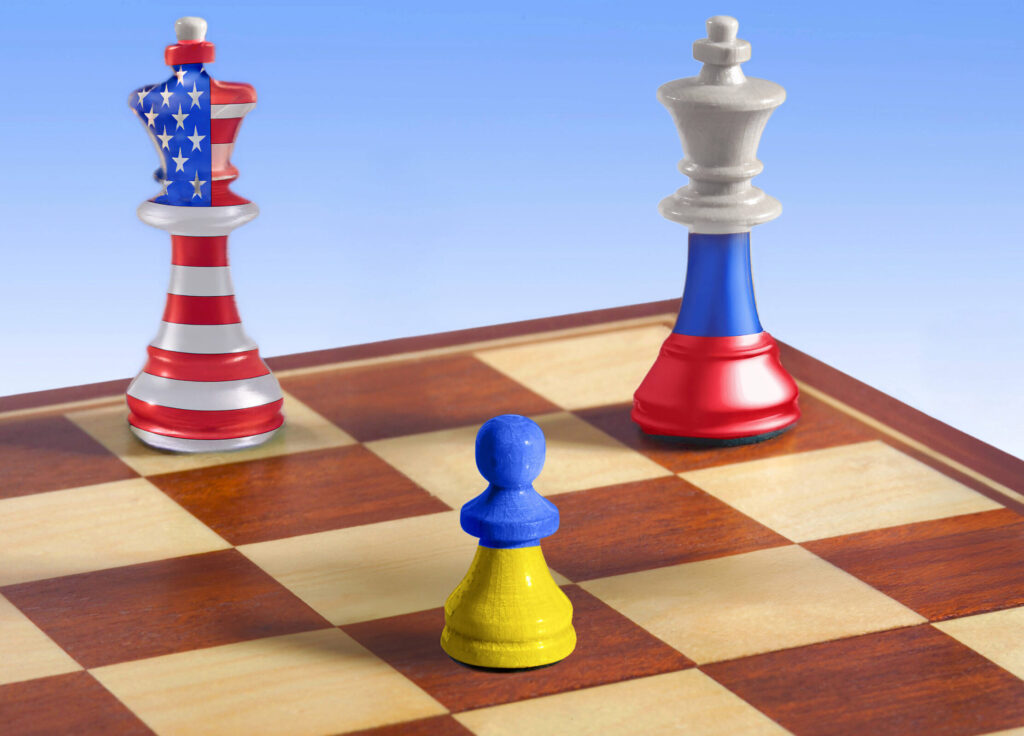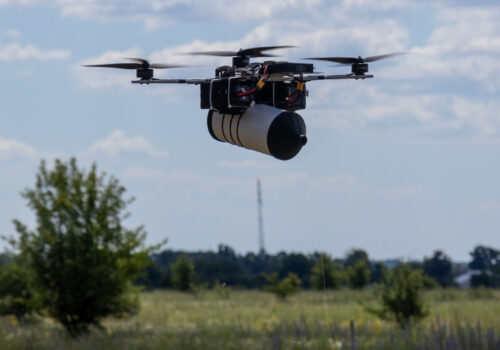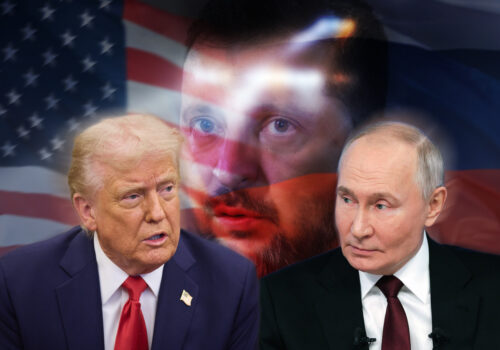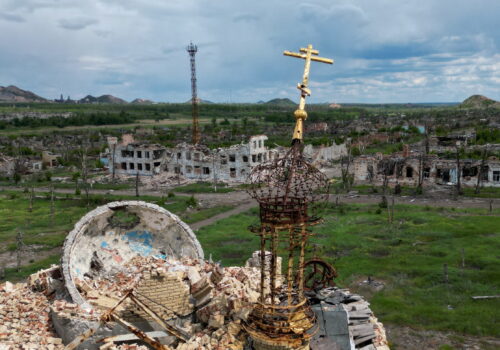As US President Donald Trump and Russian ruler Vladimir Putin prepare to meet in Alaska later this week, the main topic of international discussion appears to be exactly how much land Ukraine must hand over to Russia in order to secure a ceasefire.
This apparent readiness to change borders by force and abandon one of the central principles of international law is extremely short-sighted and risks undermining norms established at great cost over many decades of conflict and confrontation. Ignoring the lessons of the past in this manner would profoundly weaken the world order and set the stage for future wars. Unless the current course is corrected, any temporary relief from Russian aggression will be more than offset by the grave damage done to global security.
Nobody in Ukraine would question the need to end the current war. The Ukrainian population has experienced barely imaginable suffering for more than three and a half years amid the largest European invasion since World War II. Hundreds of thousands of Ukrainians have been killed. More than ten million have been forced to flee their homes. Dozens of Ukrainian towns and cities have been reduced to rubble.
Despite the unprecedented horror and trauma of Russia’s ongoing invasion, most Ukrainians recognize that limited territorial concessions will not bring a lasting peace. They note that Moscow’s so-called peace terms represent a thinly veiled demand for Kyiv’s capitulation, and understand perfectly well that Moscow’s goal is to destroy Ukraine as a state and Ukrainians as a nation. Indeed, this process of national erasure is already well underway in the approximately 20 percent of Ukraine currently under Russian occupation. It is hardly surprising, therefore, that very few Ukrainians believe offering Putin more land will somehow end the bloodshed.
Stay updated
As the world watches the Russian invasion of Ukraine unfold, UkraineAlert delivers the best Atlantic Council expert insight and analysis on Ukraine twice a week directly to your inbox.
Unless Russia’s invasion is stopped, the consequences will clearly be catastrophic for Ukraine. However, Ukrainians will not be the only victims. In reality, Putin’s imperial ambitions extend far beyond Ukraine. Since 2022, he has repeatedly justified the invasion of Ukraine by framing it as a campaign to reclaim “historically Russian lands.” This definition could equally be applied to more than a dozen other independent states that were once ruled by Russia. Putin’s ultimate objective is to restore the Russian Empire and establish a new world order dominated by a handful of great powers.
Russian victory in Ukraine would embolden Putin and validate his entire revisionist imperial agenda. A triumphant Kremlin would then seek to maintain the geopolitical momentum generated in Ukraine and capitalize on the demoralization of the democratic world. Possible initial targets for the next phase of Russian aggression would include Moldova, Armenia, Georgia, and the countries of Central Asia.
The likelihood would also increase of active Russian moves against nearby NATO member states such as Poland, Finland, or the Baltic nations. This could take the form of a conventional invasion or a hybrid assault similar to the 2014 seizure of Crimea. Either way, Moscow’s intention would be to test NATO’s core commitment to collective security. At that point, the United States would be faced with the choice of entering into a war with Russia or backing down and leaving the future of the entire NATO alliance in question.
In addition to encouraging further Kremlin aggression, Russian success in Ukraine would also bury the nuclear nonproliferation regime. Putin’s use of nuclear blackmail over the past three years to intimidate the West and deter support for Ukraine has proved highly effective and has sent an unambiguous message that non-nuclear nations can be bullied by nuclear powers. Unless the Kremlin’s nuclear saber-rattling is addressed, more and more countries will feel they have no choice but to establish their own nuclear arsenals as the only credible security guarantee.
Eurasia Center events

A Russian victory over Ukraine would serve as a green light for authoritarian rulers around the world. China, Iran, North Korea, and many others would all draw the same conclusion that the West has grown too weak to defend its own core values or the broader standards of international law that have shaped global security since World War II. Instead, the laws of the geopolitical jungle would now apply, with territorial conquest back on the table.
In this dangerous and unstable new international environment, the United States could soon find itself confronted with simultaneous security challenges on a variety of geographical fronts ranging from Europe and Asia to the Middle East. Key allies like Israel, Taiwan, South Korea, and Japan would be more vulnerable than ever.
Meanwhile, global trust in the United States would be significantly undermined by the fall of Ukraine. This would make it far more challenging for Washington to maintain existing strategic partnerships. In all likelihood, many formerly pro-Western countries throughout the Global South would look to pivot toward new alliances with China and Russia.
There is nothing inevitable about this descent into an era of insecurity and international aggression. It is still possible for the West to avert such an outcome by backing the defense of Ukraine and preventing Russia’s invasion from succeeding. Crucially, Ukrainians are not asking their Western partners to fight for them. All they require is sufficient military aid to regain the battlefield initiative and bring the war home to Russia, along with effective Western measures to restrict the financing of Putin’s war machine.
Pressuring Ukraine to accept a Kremlin-friendly settlement may succeed in pausing the current war, but it will not bring a lasting peace. On the contrary, it will legitimize policies of expansionist aggression and set the stage for international instability on a far larger scale. The world will become a much more dangerous place and the cost of stopping Putin’s Russia will only rise.
Pavlo Zhovnirenko is Chairman of the Board at the Center for Strategic Studies in Kyiv.
Further reading
The views expressed in UkraineAlert are solely those of the authors and do not necessarily reflect the views of the Atlantic Council, its staff, or its supporters.

The Eurasia Center’s mission is to enhance transatlantic cooperation in promoting stability, democratic values, and prosperity in Eurasia, from Eastern Europe and Turkey in the West to the Caucasus, Russia, and Central Asia in the East.
Follow us on social media
and support our work
Image: IMAGO/Wolfgang Maria Weber via Reuters Connect





